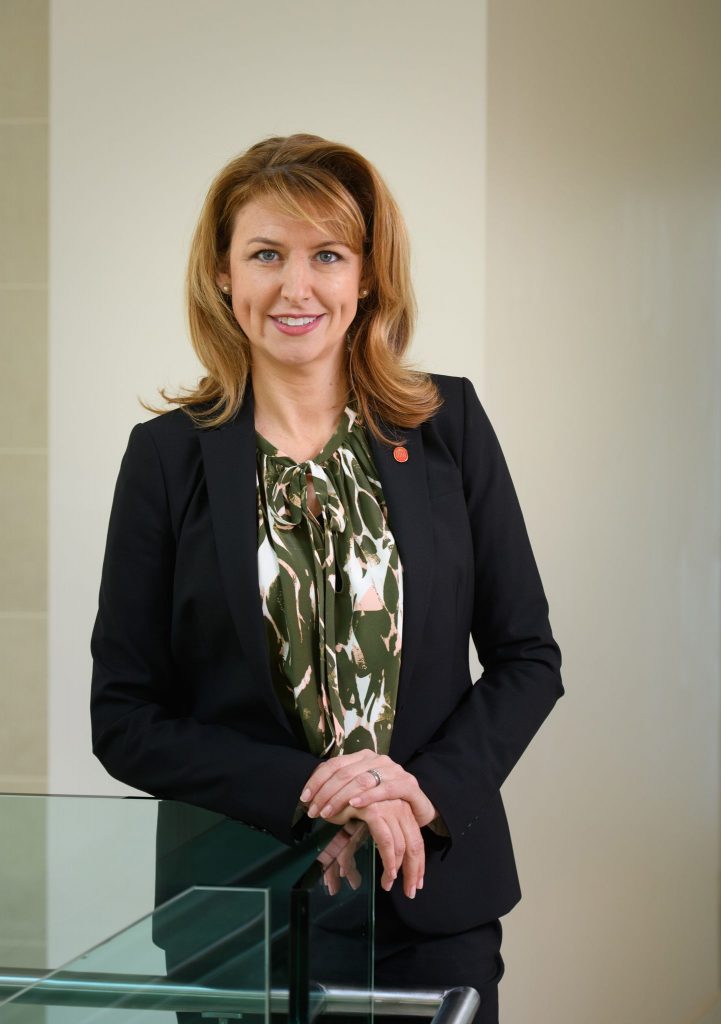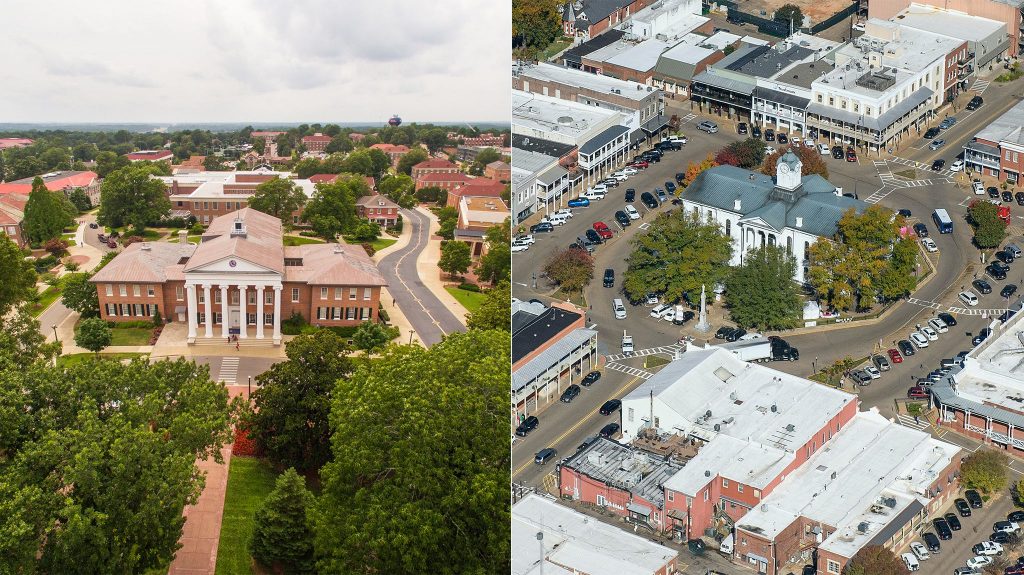A new report from an economic renewal institute praises the partnership of the University of Mississippi and the city of Oxford for building an entrepreneurial ecosystem that fosters strong growth for long-term economic success.
The “Young Firms and Regional Economic Growth: Knowledge-Intensive Entrepreneurs Critical” report was released by Heartland Forward, a “think-and-do tank” based in Bentonville, Arkansas. The institute focuses on improving economic performance in America’s heartland, comprising 20 states in the south central U.S. and Midwest.
Oxford ranked 12th in the report’s overall ranking of young firm activity for the country’s top 50 micropolitans, or urban areas with a population between 10,000 and 50,000 people. The ranking was the highest of any heartland micropolitan.
The young firm activity ranking was based on the share of total employment at firms five years old or younger, and the share of employment at those young firms with a bachelor’s degree or higher. The report demonstrates how knowledge-intensive and Main Street entrepreneurs are critical to long-term economic success.
“This is the first quantifiable proof that our brand of economic development is actually the best way to grow a local economy,” said Jon Maynard, president and CEO of the Oxford-Lafayette County Economic Development Foundation. “In the past, we have relied on comparative economic indicators that have provided some level of guidance that we are on the right track.
“This study is evidence that Oxford and the University of Mississippi are ahead of the pack when it comes to the future of economic development.”
The report noted that Oxford “demonstrates how the right ingredients, plan and the ability to execute creates a model other Heartland micropolitans can emulate to improve their economic performance and job creation.”
The report said that the “University of Mississippi has engaged in academic entrepreneurship for many years, and these businesses create technology-based jobs. The University of Mississippi trains ample talent to put into these young firms.”
“The key to long-term economic success lies in developing environments that are conducive for entrepreneurs to start and scale up their firms,” according to the report’s executive summary. An entrepreneurial ecosystem that spawns and nurtures young firms determines the economic destiny of communities.
The university spurs entrepreneurship and assists with economic growth through several entities and initiatives.
UM is home to Insight Park, a 19-acre research and business park where businesses can take advantage of collaboration opportunities with Ole Miss students, staff and faculty, drawing upon their research, academic resources and more. The park includes the 62,000 square-foot Innovation Hub, which provides an enterprising environment for companies to build and execute their business dreams.
“Insight Park is part of a robust entrepreneurial ecosystem at UM,” said William Nicholas, the university’s director of economic development. “We understand the importance of cultivating entrepreneurship and the significant role it plays in economic development.
“We are fortunate to have strong leadership at UM who recognize the significance of our role in economic development and are willing to provide the necessary resources to support it.”
The Office of Technology Commercialization is responsible for stimulating, protecting, managing and transferring intellectual property created by university employees from campus to the private sector for commercialization. The office recently launched a pilot program with the Mississippi Small Business Development Center to assist employees interested in starting new businesses out of the university’s research enterprise.
The office also is a member of a consortium of academic institutions creating a technology transfer accelerator hub for biomedical technologies in the Southeast. The National Institute of General Medical Sciences grant is helping create an accelerator hub in the Southeast Institutional Development Award region, which includes Arkansas, Kentucky, Louisiana, Mississippi, Puerto Rico, South Carolina and West Virginia. Phase one of the grant included planning.

“We have been awarded phase two of the grant and are excited to launch our virtual accelerator website that will connect biomedical entrepreneurs to resources in six states and Puerto Rico,” said Allyson Best, director of the office.
Elsewhere on campus, the McLean Institute for Public Service and Community Engagement’s Catalyzing Entrepreneurship and Economic Development Initiative helps build partnerships between UM students and faculty and Mississippi communities; and Ole Miss students are inspired to create innovative businesses through the teaching, research and service of the Center for Innovation and Entrepreneurship.
And the Center for Manufacturing Excellence‘s unique learning experience for students – teaching accountancy, engineering and business students to become problem-solvers and critical thinkers in the world of modern manufacturing – develops leaders, innovators and entrepreneurs.
In 2019, the Association of Public and Land-grant Universities named UM an Innovation and Economic Prosperity University, a designation that recognizes the university’s strong commitment to economic engagement and its work with public and private sector partners in Mississippi and the region.
Although the study was completed before the economic impacts of the COVID-19 pandemic were known, its recommendations are prophetic in the context of how the country reopens and charts a course for recovery, said Ross C. DeVol, president of Heartland Forward.
“In short, we need to get entrepreneurs and the young firms they create out of intensive care to put the U.S. economy back on the road to recovery,” DeVol wrote in his President’s Note. “It is vital to sustain these young firms because they play a key role in economic growth at the national, metropolitan and micropolitan levels. …
“We must support this group of small firms and change our economic development paradigm over the long term towards supporting entrepreneurs (who) start and scale up their firms.”




